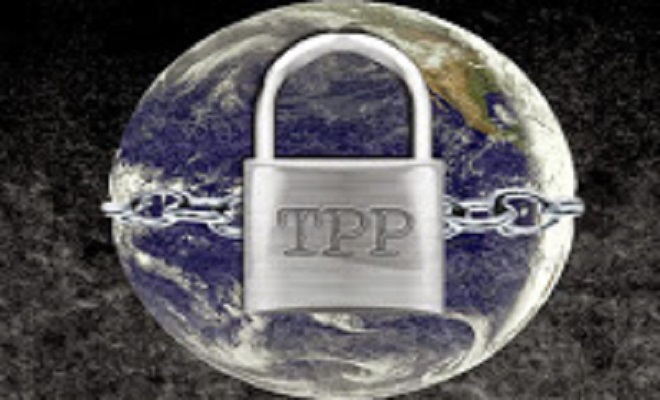 Activist Post
Activist Post
Economy
Secrecy Defines Trans-Pacific Partnership Deal as Opponents Decry Threat to Jobs
by Aaron Dykes, Activist Post.com:
Critics are mounting in Congress and across the country over the Trans-Pacific Partnership (TPP), making a major issue out of stopping President Obama’s attempt to fast track the secretive trade agreement.
Grassroots opponents have been fighting the TPP for years now, while powerful corporate interests have negotiated favorable terms for a deal that could cost a great deal both to national sovereignty and to the economic livelihood of the working and middle classes.
Thus, opposition is coming from the political left-aisle – prominent Democrats are distancing themselves from Obama and voicing their opposition to the TPP in conjunction with labor interests, unions and others poised to meet unfair competition from lower wage manufacturers throughout the existing and developing multi-national “free trade” manufacturing zones in competing overseas nations.
These members of Congress and others are complaining about the highly secretive process of the trade agreement, and the extreme measures taken before even members of Congress can read passages from the pending 12-nation trade agreement. Via Politico:
Thus, it should be clear enough who the agreement seeks to benefit. With emphasis on subtly combating Chinese diplomatic and trade pressure, it opens the door for mega-corporations seeking to expand their footprint of dominance over the Asian and Latin American world. As Politico notes:
So they are hiding behind the cloak of “national security” even while admitting that they have disclosed more about the agreement to the these foreign nations than to the leaders of this one.
The public has not been given an outline of the scope of this new phase of globalism, including how it might affect their jobs, income and the overall economy. It is not a common talking point on the news, or goal of a dramatized struggle with protests and riots.
President Obama has not appealed to its virtues in a public address or plead for the need to pass it. It has been a whisper in the public forums, while inside Washington, its promoters insist upon Fast Track approval and discrete, off-the-record proceedings.
What little has come to light about the past several years of secret negotiations over the Trans-Pacific Partnership has indicated that the process has been led by corporate lawyers and trade lobbyists from the pharmaceutical, agribusiness and chemical giants and other players with insider interests.
The deal has all the hallmarks of the nation’s other big international trade agreements. Like NAFTA, CAFTA, the Security and Prosperity Partnership of North American and others, the powerful economic drivers of the deal are coordinated by and confined to the ownership level and to top managers, and discussion of its impacts – and even its promises – are downplayed in the media to keep the issue of the radar for workers ‘adjusting’ to the new rules of the game amid a challenging and even desperate market.
The People will be the last to know, and the least to benefit.












